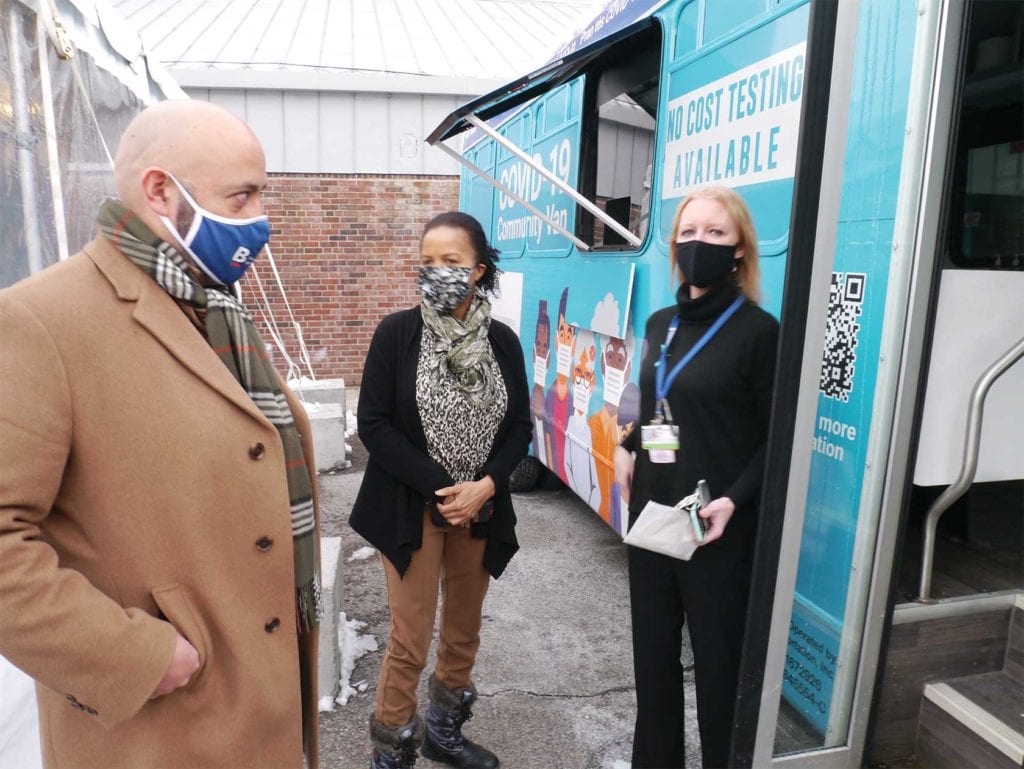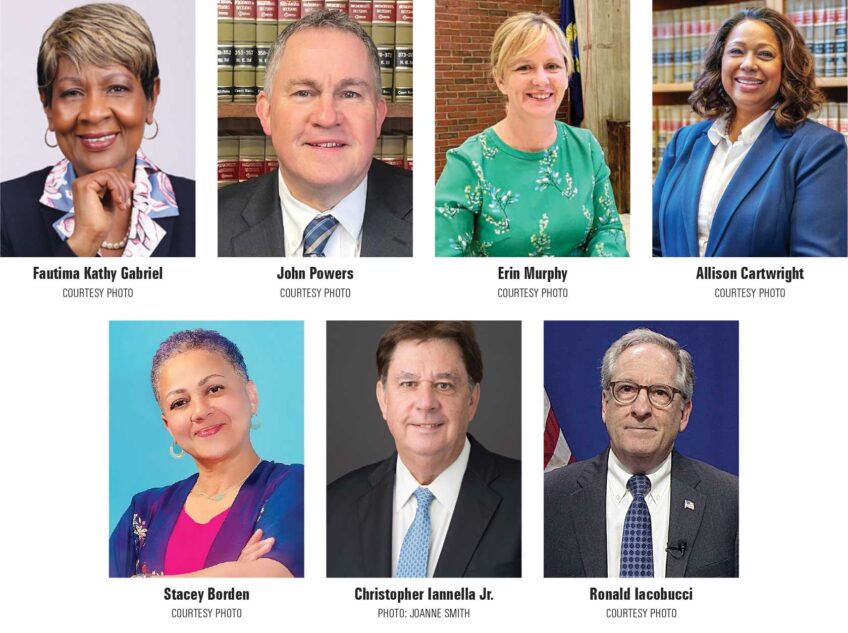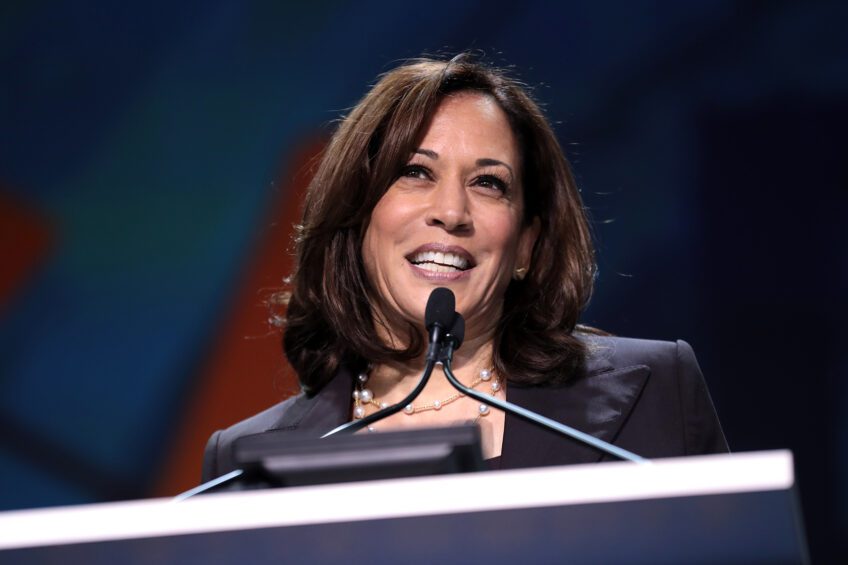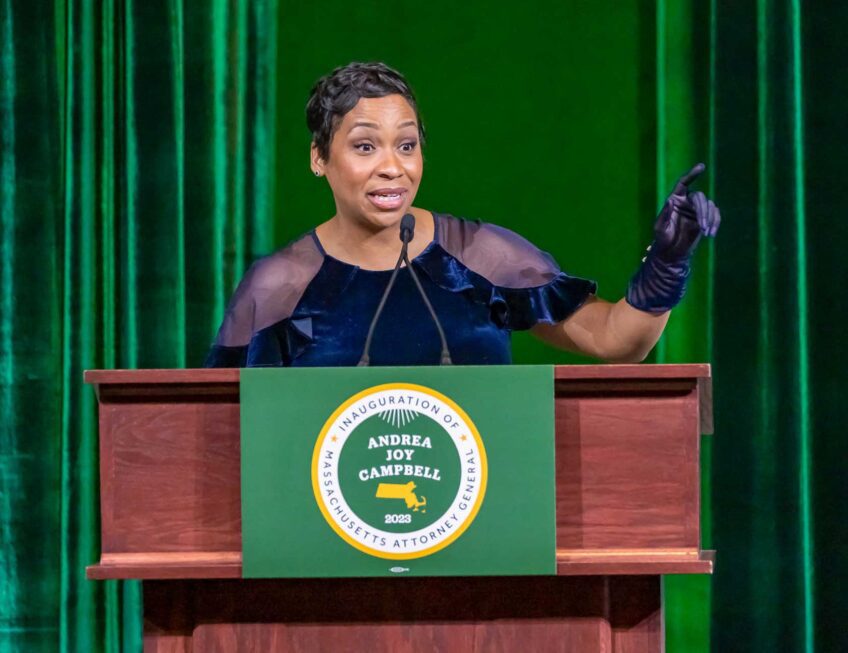
Within days, District 7 City Councilor and Council President Kim Janey will almost certainly make the move from the offices of the City Council to the other side of City Hall’s 5th floor, where she will make history as the first Black and first woman to serve as mayor of Boston.
Last Thursday in Washington, D.C., Mayor Martin Walsh met little resistance during a confirmation hearing for his pending appointment as secretary of the Department of Labor in the Biden administration. His imminent departure sets the stage for Janey’s ascendance.
Janey, who has been attending briefings with Walsh’s staff over the last several weeks, says she is ready for the moment she will take over as the city’s chief executive officer.
“It’s humbling,” she said in a telephone interview with the Banner. “I think back to my lived experience, growing up a little girl in Boston. Being bused during court-ordered desegregation and all that went with that. I think of what it means for my 6-year-old granddaughter, what this means for all children in the city of Boston — to see what’s possible.”
The City Council has waived a requirement that the mayor’s seat be filled with a special election in advance of this year’s regularly scheduled municipal balloting, meaning Janey will remain acting mayor until the results of the November election are certified.
During her two terms in office, Janey has voted in lockstep with the elected councilors of color, pushing a progressive agenda on policing reforms, education equity and economic empowerment for the city’s Black, Latino and Asian populations, and often butting heads with Walsh and the white councilors.
In the coming weeks, Janey will face important decisions on those issues as the city confronts its response to the COVID pandemic, the return of students to in-school instruction, the often-difficult decisions in the school budget and addresses the case of the newly named police chief who is currently on leave.
The Walsh administration’s school budget continues a two-year trend in increased school funding. Janey says she supports the increased investment in students.
“I grew up in a family of educators,” she said. “I spent a good chunk of my career focused on education advocacy. I think the more we invest in our schools, the better outcomes our children will receive.”
She said she’s gratified to have a budget that allows for social workers in every school building.
“When we add COVID, we see how it’s been exacerbating the opportunity and achievement gap between Black and Latinx and white children.”
With students out of school buildings for more than a year, Janey said she’s looking forward to bringing them back.
“There’s nothing more important that making sure our students are able to get back in the classroom,” she said. “We know that with remote learning, everyone’s trying their best. But we know it’s exacerbating these gaps.”
Asked what conditions would need to be in place to make it safe for students and school staff, Janey did not give specifics, but stressed that decisions have to be made with stakeholders.
“We have to do it responsibly,” she said. “We have to make sure that educators, parents and young people themselves are part of the discussion and decision. They are the ones on the front lines. We need to make sure they are developing these solutions.”
Another challenge Janey will face upon assuming office is turnover at the head of the Boston Police Department, where Walsh’s appointee, Dennis White, has been suspended pending an investigation into domestic assault allegations from 22 years ago.
While some in the Black community have questioned why the allegations, which never went to trial, are being aired now, Janey said she supports the investigation.
“We need to let the investigation run its course,” she told the Banner.
Last year, Janey joined four other councilors of color in opposing the mayor’s proposed 2022 budget, calling for a reallocation of 10% of the BPD’s budget into violence prevention and social service programs. She said this year’s budget, and the national conversation around race and policing, gives the city an opportunity to rethink policing. That conversation, she added, should include police officials and community members.
“We have to have a conversation that gets beyond ‘us-versus-them,’” she said. “There’s too much work to do.”
What’s next?
The race for the mayor’s seat has heated up over the last week, with Boston Chief of Economic Development John Barros and South End-based state Rep. Jon Santiago both signaling their intentions to run. The two would join city councilors Michelle Wu and Andrea Campbell, both of whom announced their candidacies last year and both of whom have more than $750,000 reported in their campaign war chests, and Annissa Essaibi George, who announced two weeks ago and reports $152,979 in her campaign account.
Janey, who observers say could benefit from the power of incumbency, has not yet said whether she will join the race for mayor.
“I’m laser-like focused on the transition,” she said.
Janey has appointed as co-chairs of her transition team Framingham Mayor Yvonne Spicer and Cambridge Mayor Sumbul Siddiqui. Others on her transition team include former state Sen. Linda Dorcena Forry, now a vice president at Suffolk Construction; Amplify Latinx co-Founder Betty Francisco, Initiative for a Competitive Inner City CEO Steve Grossman and Eastern Bank Vice President Quincy Miller.
In the coming weeks, Janey will likely be negotiating a new relationship with the former colleagues on the Council while wading through the intricacies of the city budget. Right now, however, she has a short time to savor the historical moment in which she is the central player as the first Black woman in the city’s corner office.
“It’s indicative of how far we’ve come,” she says. “But also, I’m reminded that there is still a lot of work to do.”







